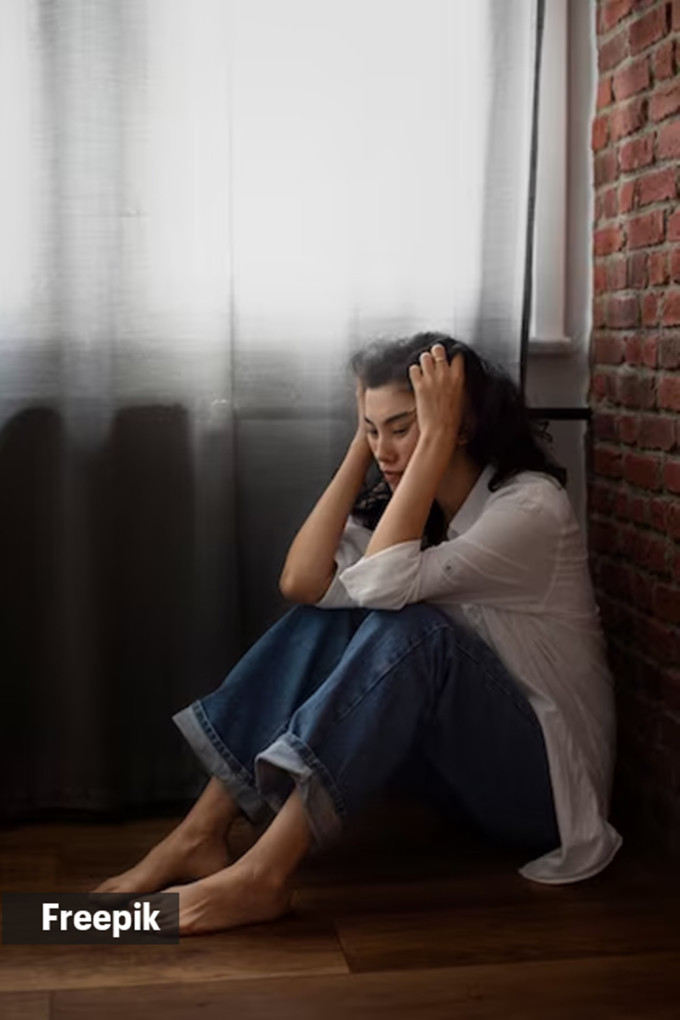Kusha Kapila feels ‘dehumanised’ after jokes made about her divorce and weight in roast video; how public shaming can impact individuals
Content creator-turned-actor Kusha Kapila has spoken out against her experience on comedian Ashish Solanki’s ‘Pretty Good Roast Show’ on YouTube.
Kapila is an Indian content creator known for her comedic sketches and social media presence. She gained popularity through her relatable and humorous portrayals of various characters, including those of South Delhi girls. She has since expanded her career into acting and hosting.

The episode, which aired in June, featured Kapila alongside stand-up comedians Samay Raina, Gurleen Pannu, Aaditya Kulshreshth, and Shreya Priyam Roy. What was intended to be a comedic roast took a dark turn as the panel made brutal jokes about Kapila’s divorce from Zorawar Singh Ahluwalia, leading to widespread criticism from her followers.
The episode was opened by Raina, who called her a “gold-digger”, followed by other comedians making jokes about her drastic weight loss. Kapila tied the knot with Ahluwalia in 2017, and announced the separation in June 2023.
In response to the backlash, Kapila issued a statement on YouTube, expressing her disappointment and discomfort with the “shockingly unkind” jokes that she feels “straight-up dehumanised” her. She said, “Jokes weren’t shared beforehand (as it’s done in all roast formats in the West) so I had no idea what was in store for me. Maybe I should have asked for a script and known better but since friends were involved, I didn’t.”
Kapila also revealed that the episode was shot in January, and she spent the following six months negotiating and pleading for cuts to be made before it aired.
Short-term and long-term psychological effects of public shaming
Gurleen Baruah, occupational psychologist and executive coach at That Culture Thing, says, “Public shaming on issues such as weight, appearance, intelligence, or personal mannerisms can have profound psychological impacts on individuals. The effects can vary based on each person’s resilience, but public shaming generally leads to both short-term and long-term consequences.”
In the immediate aftermath, she says, individuals often experience intense emotional distress, feeling hurt, embarrassed, and ashamed. This emotional turmoil can quickly manifest as anger and irritability, often displaced onto others who have no role in the original shaming incident.
The frustration that comes from being unfairly judged can lead to a pervasive sense of self-blame, even when the individual is not at fault. This internalised frustration can contribute to social withdrawal, as the individual may seek to avoid further humiliation and negative judgment.
 The frustration that comes from being unfairly judged can lead to a pervasive sense of self-blame (Source: Freepik)
The frustration that comes from being unfairly judged can lead to a pervasive sense of self-blame (Source: Freepik)
If these short-term effects are not addressed, Baruah says, they can “evolve into more enduring psychological issues.” Persistent low self-esteem is a common consequence, as the repeated shaming chips away at an individual’s sense of worth.
For some, public shaming can lead to body dysmorphia, where an obsessive focus on perceived physical flaws dominates their thoughts and behaviours. This distorted self-image can be incredibly damaging, leading to unhealthy habits and further reinforcing negative self-perceptions.
Furthermore, Baruah states, public shaming of a woman’s relationship status can exacerbate feelings of inadequacy and social exclusion. “Single women might feel stigmatised and pressured to conform to traditional marital expectations, while those in relationships might face criticism for not adhering to societal norms regarding their role as partners or mothers.” This type of shaming can lead to a loss of self-esteem, increased anxiety, and a sense of worthlessness.
In what ways can public shaming ‘dehumanise’ individuals?
“When humans are reduced to mere bodies and subjected to public shaming, the lack of sensitivity and dehumanisation profoundly impacts their psychological makeup,” Baruah remarks. Dehumanisation strips individuals of their “inherent dignity and identity”, leading to severe mental health consequences.
Dehumanisation occurs when individuals are no longer seen as whole people but as objects subjected to judgement and ridicule. This process can profoundly damage self-worth and identity, leading to a cascade of psychological effects. When people are publicly shamed, their humanity is disregarded, which can result in feelings of intense isolation, worthlessness, and self-hatred.
Strategies or coping mechanisms individuals can employ to protect their mental health
Here’s a comprehensive approach to coping with the effects of public shaming:
Sit with Your Emotions
Begin by acknowledging and sitting with your emotions. Observe what’s happening in your body, mind, and gut. Recognize and validate your feelings of hurt, anger, or anxiety without judgment. This self-awareness is the first step toward understanding and addressing the impact of shaming.
Seek Professional Help
Consider engaging in psychotherapy to explore and address the emotional and psychological effects of public shaming. A therapist can help you develop healthier coping mechanisms and work through feelings of inadequacy and self-doubt.
Educate Yourself
Read books and resources on self-worth and self-compassion. Understanding your intrinsic value and learning to build a positive self-image can be empowering. Knowledge can help challenge and counteract negative self-beliefs.
Use CBT-Based Exercises
Cognitive Behavioural Therapy (CBT) techniques can be particularly effective in managing negative self-talk and internal criticism. Engage in exercises that help you recognize and reframe distorted thoughts, and challenge the “bully” in your own head.
Be Assertive When Necessary
Learn to be assertive in setting boundaries and expressing your needs. If you encounter shaming behaviour, respond calmly and assertively, or choose to disengage if necessary. Protecting your space and well-being is crucial.
📣 For more lifestyle news, click here to join our WhatsApp Channel and also follow us on Instagram
Disclaimer: The copyright of this article belongs to the original author. Reposting this article is solely for the purpose of information dissemination and does not constitute any investment advice. If there is any infringement, please contact us immediately. We will make corrections or deletions as necessary. Thank you.
